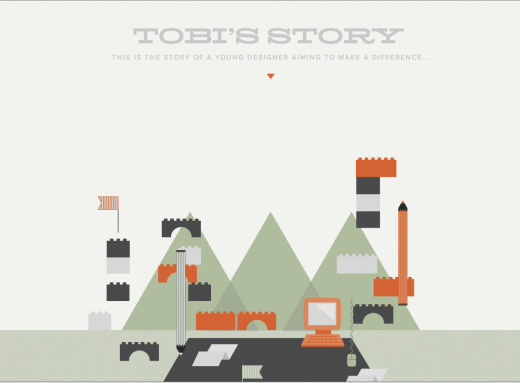The Facebook experiment has failed. LetŌĆÖs go back. ŌĆö A ProgrammerŌĆÖs Tale ŌĆö Medium
Jared Sperli stashed this in internet
Stashed in: Interest Graph!, Facebook!, Content is king., Personalization, Medium
I am signed into Facebook right now. At a quick glance, the entire list of posts on the first screen are irrelevant to me. If I scrolled down I can find 4 stories I actually care about, from a list of about 30. The most important page on Facebook has more than three-fourths of absolutely useless content.
Surprising. Facebook is a company with a very large number of talented people. They know a lot about me. Yet, their product looks like one of those spam filled mailboxes from the nineties.
The problem is Sharing. It is the most fundamental feature of Facebook, and itŌĆÖs completely broken.
It canŌĆÖt be fixed. ItŌĆÖs over.The thing is, these arenŌĆÖt accidental flaws in Facebook. These are features.
An ideal Facebook would have been a directory of people and their connections. People can message each other, post text updates and pictures.
In the end, there is a lot to learn from this massive social experiment. Your friend circle and impulsive actions such as ŌĆślikesŌĆÖ cannot predict what you want to read. Indiscriminate sharing is a bad idea. A large social network isnŌĆÖt the best way to find information.
We need to go back to smaller communities. Where people arenŌĆÖt lost in the mediocre averages of large networks. ThatŌĆÖs where ideas flourish.
That journey has begun.
AND IT IS CALLED PW
I wouldn't say PandaWhale has gotten good yet at making sure your stream is relevant to you.
But we're definitely getting there.
Jeswin's essay is definitely thought provoking.
And reminds me a little of this paragraph:
After reading┬Āmy recent thoughts about why Tumblr is so valuable, Josh Elman of Greylock Partners made a most astute observation: EveryoneŌĆÖs Facebook feed is pretty much the same as everyone elseŌĆÖs of the same age. Twenty-year-olds pose in the club, 30-year-olds share wedding photos, by age 40 youŌĆÖre looking at a lot of cute pictures of your friendsŌĆÖ kids. But with Tumblr, you never know what youŌĆÖre going to get ŌĆö even with people you know personally. That, in a nutshell, is the difference between a┬Āsocial┬Āgraph and an┬Āinterest┬Āgraph.
Great Hacker News comment:
Facebook is performance art. It's a phonebook of people I lost contact with many years ago. It's also a quasi-broken emailing list program. It might be a decent advertising platform for small businesses. Don't know.It's not a news feed. It's not stories relevant to me. It's not a way to actually have friends. It's not a place where people create things and share (mostly). People might┬Āthink┬Āit's those things. Hell, Facebook itself will tell you that it's those things, but it's not.
I agree with the article. Facebook's biggest problem is that, because you're always talking to┬Āeverybody, you really can't say much. Conversation is, and has always been, context-dependent. You don't say things at a funeral home that you would at a keg party. You don't share the same stories with your peers that you would with your grandma.
I've always thought Facebook was from the devil. Anybody that would use my own friends against me to suck me into a network of participating whether I wanted to or not? Not somebody with my best interests in mind.
I only use Facebook with the FB Purify plugin that gets rid of a lot of the spam. Even then, if I could abstract myself completely away from it, and do all of my social networking activity on my O/S without a browser or a layer of commercial crap stuck on top, I would in a heartbeat.
ADD: It might also be a decent shared photo album. Jury is still out on that one.
What really bothers me is not that these services like FB, Twitter, G+, or various cloud storage systems are not useful -- they are. It's that, instead of being internet standards, they're┬Ābranded┬Āproperties. And they're all doing the same thing. It's like if email was a completely different thing depending on which ISP you used. These things should be completely abstracted away from any corporate logo. If I want to store things in the cloud, for instance, I could care less who actually keeps the bytes. If I want to reach my high school chums, why the heck do I need some other party to help me do that? I control gigabytes of storage and god knows how many computational cycles on my personal possessions, and I need Google+ to tell me whose┬Ābirthday┬Āit is today?┬ĀReally?
The thread:┬Āhttps://news.ycombinator.com/item?id=5811564
yes!!!
What really bothers me is not that these services like FB, Twitter, G+, or various cloud storage systems are not useful -- they are. It's that, instead of being internet standards, they're┬Ābranded┬Āproperties. And they're all doing the same thing. It's like if email was a completely different thing depending on which ISP you used. These things should be completely abstracted away from any corporate logo. If I want to store things in the cloud, for instance, I could care less who actually keeps the bytes. If I want to reach my high school chums, why the heck do I need some other party to help me do that? I control gigabytes of storage and god knows how many computational cycles on my personal possessions, and I need Google+ to tell me whose┬Ābirthday┬Āit is today?┬ĀReally?
You don't need them to tell you anything.
The problem is that growth hackers have convinced these services that they need to keep hitting people with new information so they'll keep coming back.
The real problem is, a person only has 24 hours in a day, and we're not going to spend all of it using social media.
We need less noise, better filters, and better community.
The great defriending of Facebook:
http://pandawhale.com/post/20862/the-great-defriending-of-facebook










6:18 PM Jun 02 2013